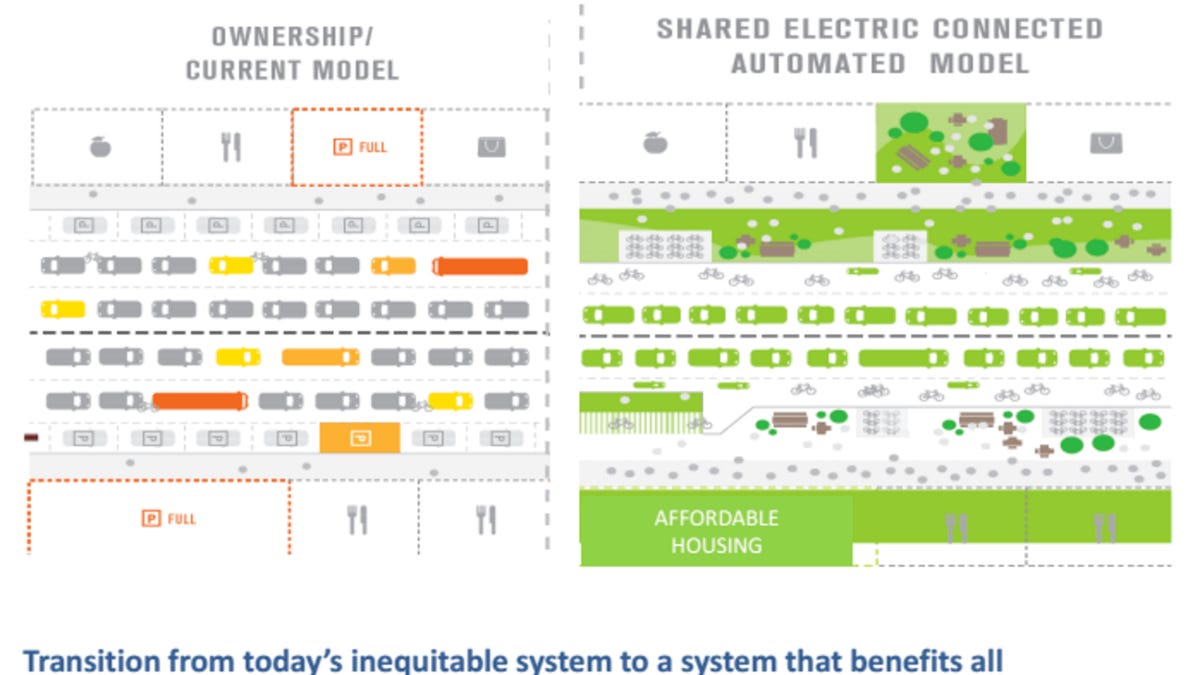San Francisco's Smart City Challenge submission is a networked transit utopia
SF is one of seven finalists in a contest where the winning city receives $50 million to transform into a city of the future.
Now that the US Department of Transportation Smart City Challenge announced its list of seven finalists, each city still in the running has a chance to submit a full, proper pitch for how it would turn a $50 million grant into a city that reflects the future of transportation. San Francisco presented its idea this week, and it's both surprisingly inexpensive and fairly comprehensive.
San Francisco's plan involves taking 10 percent of single-occupant cars off the road, replacing them with a thoroughly networked system of smart transit options, including autonomous buses that talk to one another, shared bikes and loads of ride-sharing. There would also be city-owned electric vehicles and shuttles that connect bus lines to neighborhoods far away from the city center.
All of these options would be lumped together in a single app that works across the city, similar to Go LA being implemented downstate. Even more promising is the plan to replace all the parking structures and parallel-parking lanes with green space and affordable housing. If you've seen home prices in San Francisco, you'd know that the latter is sorely scant, thanks largely to the tech boom and all the venture capital that comes with it.
While the whole project would cost about $149 million, or way more than the Smart City Challenge grant provides, San Fran is teaming up with a number of companies to scrounge up the remaining dough. Companies pledging to help San Francisco achieve its goals include Ford Motor Company and local startups.
None of this would happen overnight. The San Francisco Examiner notes that new transit options would be rolled out in three-year phases taking up the better part of a decade. Thankfully, even if San Francisco doesn't win the grant, there's a good chance that many of these ideas will continue to move forward. After all, it's not like traffic disappears when the grant money does.


